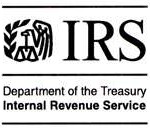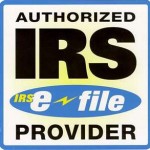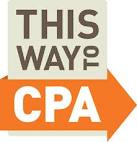
IR-2011-100, Oct. 12, 2011
WASHINGTON — The Internal Revenue Service today advised tax professionals and tax firms that do not have Electronic Filing Identification Numbers (EFINs) to start the process to obtain EFINs now so they can meet new e-file requirements for 2012.
Starting in January 2012, any paid preparer or firm that reasonably anticipates preparing and filing 11 or more Form 1040 series returns, Form 1041 returns, or a combination of Form 1040 series returns and Form 1041 returns generally must use IRS e-file. Their clients who file these forms, however, may independently choose to file by paper.
To become Authorized IRS e-file Providers, preparers must create an e-Services account, submit an EFIN application and pass a suitability check. The approval process can take 45 days or more. For a firm or an individual, only one EFIN is needed.
The 2012 requirement will mark the second and final phase of implementing a law that was intended to boost the electronic filing rate of income tax returns for individuals, trusts and estates. In 2011, the e-file mandate pertained to any paid preparer or firm that anticipated preparing and filing 100 or more returns. The e-file rate by paid preparers increased 12 percent in 2011.
Currently, nearly 80 percent of individual tax returns are filed electronically. The IRS has processed more than 1 billion individual tax returns safely and securely since the nationwide debut of electronic filing in 1990.
Preparers can review the process on IRS.gov at Become an Authorized e-file Provider or find additional guidance at the Frequently Asked Questions section.
If the requirement will cause undue hardship, preparers may seek a one-year waiver by submitting Form 8944, Preparer e-file Hardship Waiver Request. If a client wants to file a paper return, the preparer should include Form 8948, Preparer Explanation for Not Filing Electronically, with the return. A taxpayer choice statement should be obtained and kept with the preparer’s records.
Form 8948 does not have to be submitted with returns that are not currently accepted electronically by the IRS or the IRS has instructed taxpayers not to file them electronically. These returns are exempt from the federal e-file requirement. Other limited exemptions may apply.










